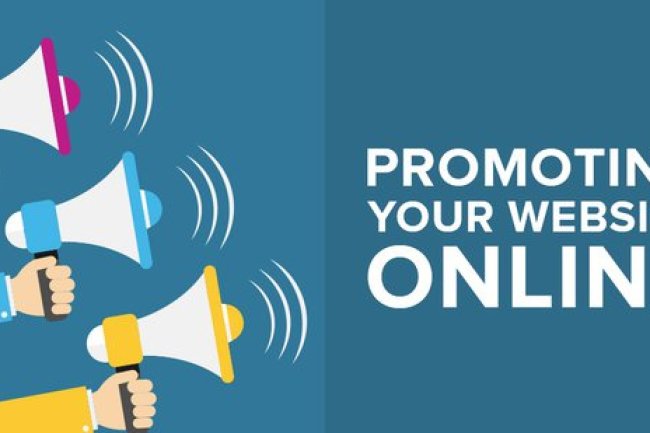Types of Digital Marketing

Digital marketing entails the strategy of advertising goods or services through digital platforms to connect with consumers. Over the past few years, the adoption of digital platforms has surged, resulting in a proliferation of various digital marketing methods. In this piece, we will explore several prevalent digital marketing techniques and examine their advantages and disadvantages.
Search Engine Optimization (SEO)
Search Engine Optimization (SEO) involves the fine-tuning of a website to enhance its position within search engine results pages (SERPs). The primary aim of SEO is to enhance a website's visibility to users of search engines, ultimately boosting its organic traffic.
Pros of SEO include:
- Cost-effective: SEO is a relatively low-cost marketing strategy compared to paid advertising.
- Targeted audience: SEO allows marketers to reach consumers who are actively searching for products or services related to their business.
- Long-term results: SEO efforts can have a long-lasting impact on a website’s — visibility and traffic.
Cons of SEO include:
- Time-consuming: SEO can be a time-consuming process, especially for new websites.
- Constant updates: SEO techniques and algorithms are constantly changing, which can make it difficult to keep up with the latest trends.
- No guarantee of success: There is no guarantee that a website will rank well on SERPs, even if all the best practices are followed.
Pay-Per-Click (PPC) Advertising
Pay-Per-Click (PPC) Advertising is a digital marketing method in which advertisers are charged a fee for every click on their advertisements. The most prevalent example of PPC advertising is Google AdWords, which enables businesses to display their ads on Google's search engine results pages.
Pros of PPC advertising include:
- Quick results: PPC advertising can generate traffic and leads for a business almost immediately.
- Targeted audience: Pay-Per-Click (PPC) Advertising allows businesses to target specific keywords and demographics.
- Measurable results: PPC advertising provides detailed data on the performance of ads, including click-through rates, conversion rates, and ROI.
Cons of PPC advertising include:
- Cost: PPC advertising can be expensive, especially for highly competitive keywords.
- Constant monitoring: PPC campaigns need to be constantly monitored and optimized to ensure they are performing well.
- Limited budget: Advertisers may have to limit the number of ads or keywords they use if they have a limited budget.
Social Media Marketing
Social media marketing is the process of promoting products or services on social media platforms, such as Facebook, Twitter, Instagram, and LinkedIn.
Pros of social media marketing include:
- Wide reach: Social media platforms have billions of users, which allows businesses to reach a large audience.
- Targeted audience: Social media platforms allow businesses to target specific demographics, interests, and behaviors.
- Engaged audience: Social media users tend to be highly engaged, which can lead to increased brand awareness and loyalty.
Cons of social media marketing include:
- Time-consuming: Managing a social media presence can be –time-consuming, especially for small businesses.
- Constant updates: Social media platforms and algorithms are constantly changing, which can make it difficult to keep up with the latest trends.
- No guarantee of success: There is no guarantee that a social media marketing campaign will be successful, even if all the –best practices are followed.
Content Marketing
Content marketing is the process of creating and distributing valuable, relevant, and consistent content to attract and engage a clearly defined and targeted audience.
Pros of content marketing include:
- Cost-effective: Content marketing is a relatively low-cost marketing strategy compared to paid advertising.
- Increased brand awareness:
Content marketing can help increase brand awareness and loyalty by providing valuable information to potential customers. - Long-term results: Content marketing can have a long-lasting impact on a business’s visibility and traffic.
- Increased website traffic: High-quality content can help drive –organic traffic to a website.
Cons of content marketing include:
- Time-consuming: Creating and distributing valuable content can be time-consuming, especially for small businesses.
- Constant updates: Content marketing requires constant updates and new content to maintain its effectiveness.
- No guarantee of success: There is no guarantee that a content marketing campaign will be successful, even if all the best practices are followed.
Email Marketing
The process of sending promotional or informational emails to a list of subscribers is called Email Marketing.
Pros of email marketing include:
- Cost-effective: Email marketing is a relatively low-cost marketing strategy compared to other forms of digital marketing.
- Targeted audience: Email marketing allows businesses to target specific demographics, interests, and behaviors.
- Measurable results: Email marketing provides detailed data on the performance of campaigns, including open rates, click-through rates, and conversion rates.
Cons of email marketing include:
- Spam filters: Emails can be filtered as spam, which can limit the effectiveness of a campaign.
- Limited audience: Email marketing requires a list of subscribers to be effective, which can be difficult to obtain.
- Constant updates: Email marketing requires constant updates and new content to maintain its effectiveness.
In conclusion, digital marketing provides a wide range of opportunities for businesses of all sizes to reach their target audience. Each type of digital marketing has its own set of pros and cons, and businesses should choose the best strategy based on their goals, audience, and budget. By understanding the strengths and weaknesses of each type of digital marketing, businesses can make informed decisions and achieve better results from their digital marketing efforts.
What's Your Reaction?





























